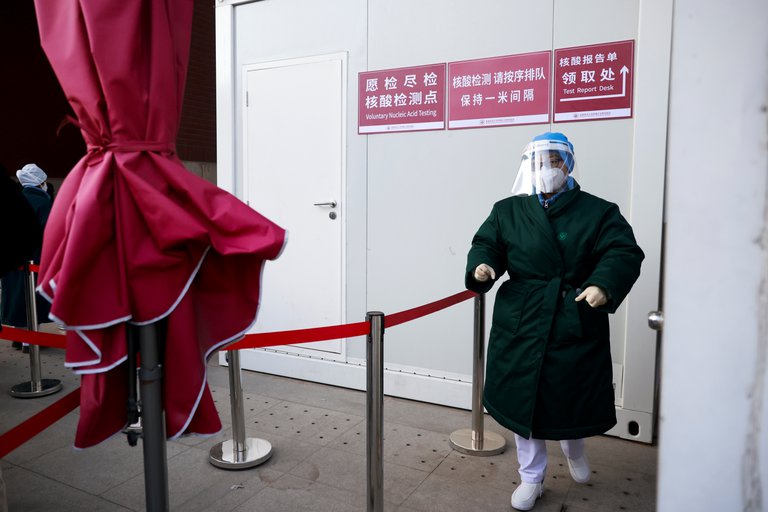China has begun to use anal tests to analyze people it considers to be at high risk of contracting COVID-19, according to the state TV network, a deployment that generated various reactions on social networks to a treatment considered invasive but that would be more effective.
They are used in places where there are mandatory quarantines or with high contagion rates. Experts explained that traces of the virus remain longer in the anus than in the respiratory tract.
The CCTV broadcaster reported that health workers performed anal swabs on residents of neighborhoods with confirmed coronavirus cases in Beijing last week, while those in designated quarantine facilities have also undergone the test.
Small localized outbreaks in recent weeks have isolated several cities in northern China from the rest of the country and led to massive testing campaigns, which so far have mainly been done with throat and nose swabs.
However, the Anal Swabs Covid Test method “may increase the detection rate of infected people,” since traces of the virus remain in the anus longer than in the airways, said Li Tongzeng, chief physician at from Beijing.
Users of the popular Chinese social media platform Weibo reacted to the method with a mixture of joy and funniest horror.
“How lucky to have returned to China earlier,” wrote one user. “Little hurt, but extreme humiliation,” said another, using a laughing emoji.
Other users who had undergone the intervention joined in the black humor:
“I’ve had two anal swabs, every time I did one I had to do a throat swab afterward. I was so afraid that the nurse would forget to use a new swab,” joked one Weibo user.
CCTV said Sunday that China’s Anal Swabs Covid Test would not be used as much as other methods, as the technique “was not convenient.”
As cases have risen around the world, China has imposed stricter requirements on international arrivals in an effort to keep domestic transmission close to zero.
All people arriving in the country must have multiple negative test results and be quarantined for at least 14 days at a designated hotel upon arrival, and many cities and regions impose additional home observation requirements.

